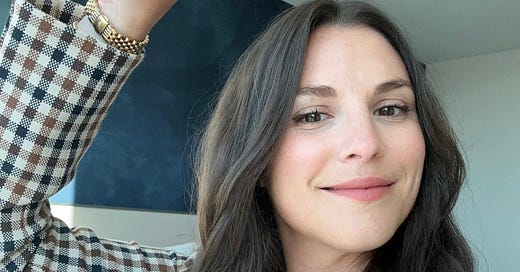You can listen to the interview here, but I’m including the article write up from NPR as well in case you missed it here.
And if you’re wondering what I’m talking about (Meta pirating books to train a new AI platform, huh?), you can find more information here. The Atlantic also posted a database so you can search and see if your work was also pirates alongside millions of protected works. Wired also broke a story about this in January, here.
And here’s what I had to say. We spoke for a bit longer than the interview, and I’m so grateful to be given the space to echo what so many of my writer colleagues are feeling. Thank you to Hafsa Quraishi and Deepa Fernandes for including me.
“I've written eight novels, and to see that they have been stolen, essentially — not just in English, but in so many different languages … it's quite a violation,” Aveyard said.
“I think we're all just a little bit scared for our jobs and our future as artists,” Aveyard said. “At the end of the day, it does feel like our work was stolen and piracy is a bigger conversation — but to know that it's not an individual theft, it is the theft by a multi-billion dollar corporation.”
How hard is it to be a writer — and how is your work impacted by piracy?
“I think there's this misconception that a lot of authors — especially the authors most people know — they're very successful. But that is not 99% of working writers, let alone working artists. This job takes so much luck to continue doing it, let alone talent and opportunity and determination. And piracy is unfortunately one of those things that threatens the livelihood of authors and makes it harder for us to be compensated for our work so that we can keep doing the work. It is proven to show that it does reduce sales, it does affect authors’ careers.
“I feel like there's a lot of nuance here. Of course, we're talking about access to reading, but at the same time, you have to think about the people who are creating those stories for you and what do they want and what do they need.”
Meta makes the argument that it’s “fair use” to train their AI models using copyrighted books without a license because it will transform the original material into brand-new work. Is that a fair argument?
“It's not brand new work, right? You can't submit an AI-written paper in a college classroom. It wouldn't be considered your material. So how can you call an AI-written novel, for example, legitimate and original? It's not original work. It's just remixing and regurgitating pieces that it's already been given. There's nothing new there.”
What do you hope will come out of the lawsuit other writers have brought against Meta?
“I think we’re hoping that it turns into a class-action lawsuit that we can all be included in. A lot of us don’t understand this technology and it’s evolving so quickly, it’s evolving faster than the laws can be made. I think we're hopeful that down the road there can be some sort of oversight, some sort of legal framework, because AI is here. People are using it without our consent. So we just need some sort of structure to make sure there is consent involved, because the intention is to create a competitor. It's not just theft of the work; it's theft of the work to create something to replace us.
“[Meta] have very clearly chosen in this discovery — we've seen it in their emails — to say, ‘We can look to license and do this legally, but it's too slow and we don't care.’ So they would rather pirate. So now I think the only thing we can hopefully enforce is compensation and consent.”
What are the implications for the world of literature moving forward?
“I'm not sure, because I'm one of those people who looks at generative-AI moving into the art space and I'm like, ‘Why are we doing this? Why are we moving AI into the humanities?’ Some people would argue it's a tool, like a modern update to a paintbrush. But even Photoshop requires artistic skill — and I'm not handwriting my books, but I need to know how to write, no matter how many times Mr. Clippy pops up.
“I do worry about anyone who thinks generative-AI can make them an artist or an author. You're kind of saying you can't do this without machine interference, and I don't know why you would want to do it in the first place. So I don't really even know who this is for.”
Thanks for sticking with us, and continuing to support artists so that we can continue making art.
Love,
Victoria





Yep--all of my fifteen books are on the list, plus translations, and even the scientific papers I wrote when I was a health care practitioner.
thank you Red Queen Victoria ! I wonder....what does a class action suit need to go forward -- a legal eagle and other defenders of our right to deny the pirates and polluters of our land and cyber space ?